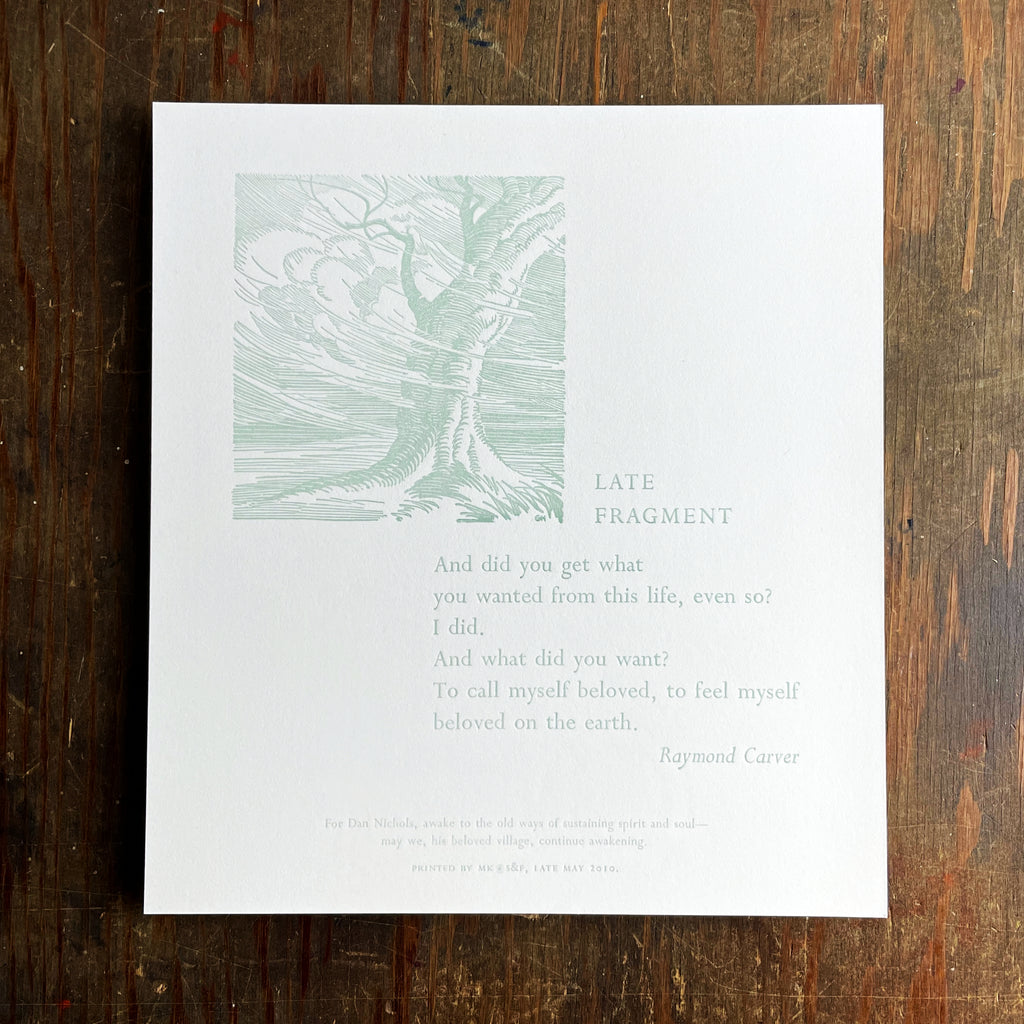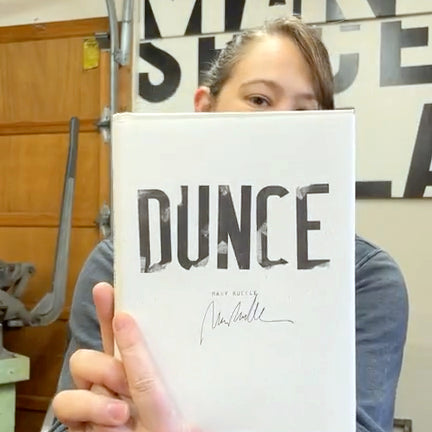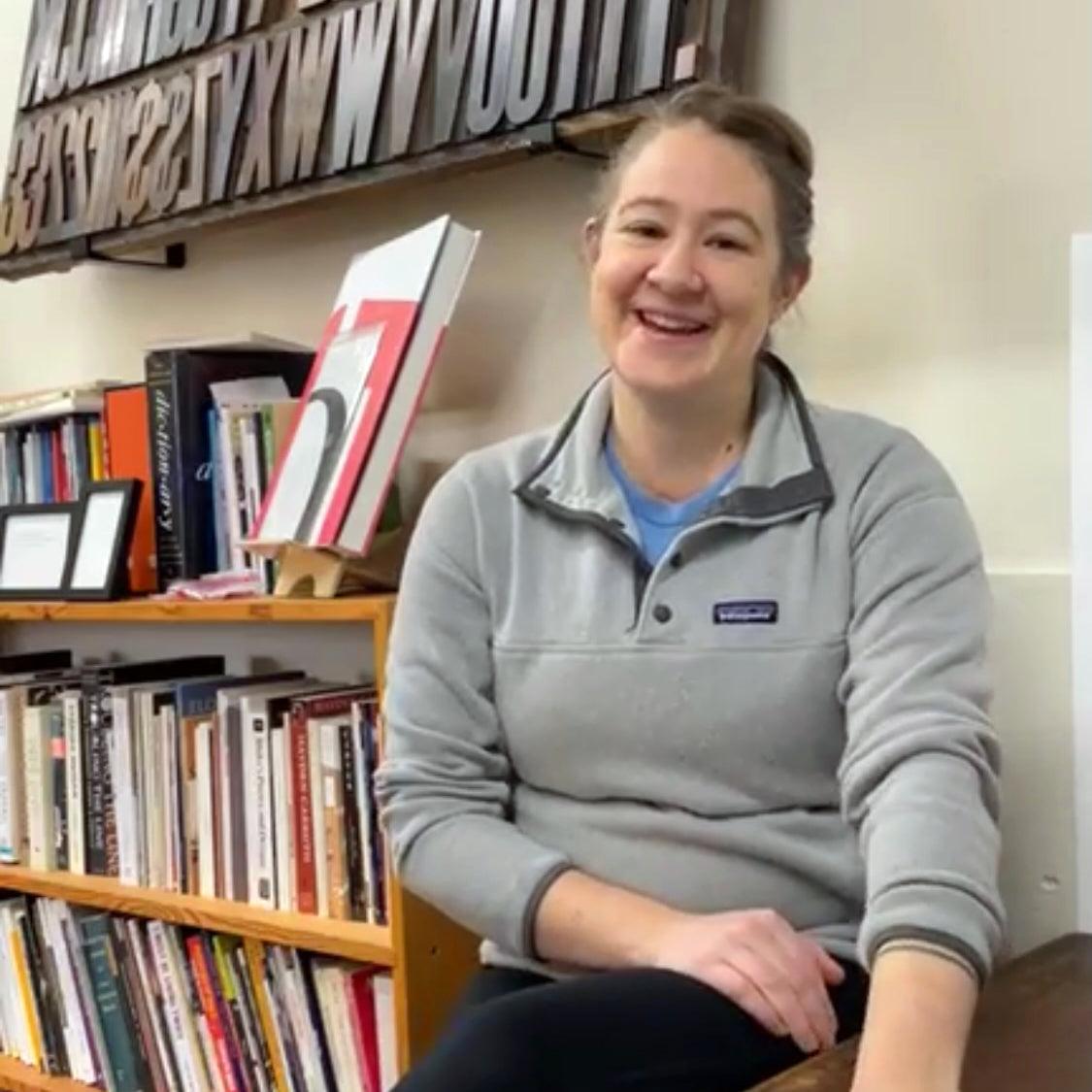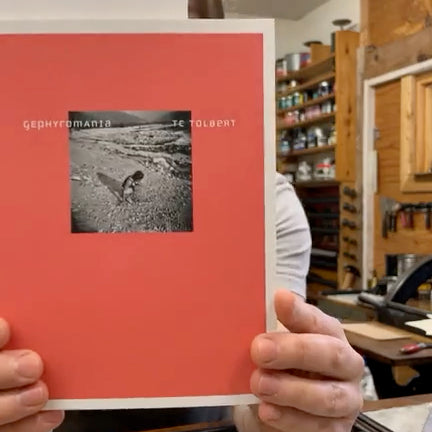Reading “Choices” by Tess Gallagher
Poetry Lunch S1E5
Reading “Choices” by Tess Gallagher from Midnight Lantern, published by Graywolf Press.
//
I first found Midnight Lantern deep in the stacks at the downtown branch of the Seattle Public Library. Thank you libraries for supporting the true art of browsing! I was looking at books by Tess Gallagher because I wanted to print something by her but I wasn't terribly familiar with her work. Which is not generally how I go about finding poems. Usually the poem comes to me first, and then I get to know as much as I can about the author. But Tess is a Northwest literary legend and she’s inextricably linked with another legendary writer from our region, Raymond Carver. Tess also happens to be good friends with one of my childhood next door neighbors. That cliche about the world being small? It really is.
My first encounter with Raymond Carver was assigned reading from a high school English teacher—the short story “Cathedral.” I don't remember the story much but one of the characters is blind and there's this description of onion skins in a paper bag, what they feel like. I remember my English teacher, Mrs. Ferguson, reveling in that description. She tried to convince me to write my big final author paper on Carver but it had been done before so I refused. I had to pick an author no one in the history of her 30+ years of teaching had chosen. Salman Rushdie it was. Interesting coincidence, the book was Midnight's Children. There’s no connection I’m sure between that and Tess' book except me realizing it just now.
Later in college I found an old ex-library copy of the Cathedral short story collection, read a few more stories and squirreled it away. I had no idea Raymond Carver wrote poetry also until my best friend’s dad died, twelve years ago now. My friend’s dad was an important father-figure to me as I grew up without mine around. Dan Nichols was a woodworker, a deeply identified Irishman from Ohio who came out west and kissed a beautiful woman in Seattle while fitting her hiking backpack before heading to Alaska one summer and then had a miserable season missing her. He came back and they landed in a little cabin across the street from my grandmother with their six week old son—my first friend—Forrest.
Dan used to always say, “Community isn't quid pro quo. You give what you have when you have it, and you get what you need when you need it.” I have experienced this to be true over, and over, and over again. Both in my giving and in my needing. It’s mysterious how they align sometimes, how they circle around and surprise and catch up and sort of balance while all the while carrying us forward together. The day before Dan died, I went in to see him. It was a beautiful afternoon in May with sun and spring breaking through everywhere. People were gathered in the backyard, neighbors and friends and family from near and far, taking turns paying our respects. I sat with him a few minutes and thanked him for showing me what a good dad looks like, so I could learn to recognize it in my future partner. He smiled and nodded and I hugged him and then I cried, and there weren't any more words until he gestured at the window — the window looking across the street to my grandma’s house. The one where he and his wife Beth had looked out countless times throughout my childhood and said a little prayer that none of the unsupervised kids playing there (myself and my cousins) would run out into the road. Beth told me this habit of theirs once and I suddenly realized what a guardian angel was.
Dan gestured to that window, which was cracked and letting a bit of breeze in through ruffling leaves. He said “Well. We know it's the end. But we’re keeping a window open.”
Turns out it was the end, for that loveliest of men. I miss him often and what a gift it has been to watch his son, my dear friend Forrest, grow into an excellent father himself. Dan loved stories and songs and he found lots of delight in language. When he got sick the family set up an online forum for heartbreaking and beautifully written updates from the front lines of leukemia. It was a necessary help for organizing help too, there were so many of us who wanted to give back to these people who gave our community so much. When Dan died, there was a huge outpouring of words from friends and family all over the place. People wrote and wrote in that semi-private online space, sharing all sorts of stories. I remember scrolling through when I got the news, half reading through big tears as a sudden windstorm ripped through the trees that night. More than once someone posted a poem by Raymond Carver:
Late Fragment
And did you get what
you wanted from this life, even so?
I did.
And what did you want?
To call myself beloved, to feel myself
beloved on the earth.
In the morning, I remember driving through our little town and swerving for big branches all around. I had a trip planned to Stern & Faye that week, where I was apprenticing with Jules Faye. I was a new printer then, fresh out of school and working two jobs while sneaking away for long weekends as often as I could muster to the Stern & Faye Print Farm, a couple hours north of here. In my grief I felt there was something I could do. Some words I could print. The poem “Late Fragment” sang out and got hold of me and I found an old engraving of a solid yet wildly waving wind-tossed tree in Jules’ collection and before I knew it, I had printed my first ever poetry broadside. About 400 copies, which all but disappeared at the memorial service—still the most well-attended memorial I've been too. When I think of how to live, and how to die, Dan Nichols tops my list of role models.

Being the baby artist that I was, I had no sense of my work living in the world beyond myself and I had no idea about the permissions process. I was awash with new grief and I made what made sense to me and gave them all away. Some time later, maybe a year or more, that childhood neighbor who knew Tess, Holly Hughes (close friend of the Nichols; marvelous poet herself) told me she had taken an extra copy of the “Late Fragment” print I made for Dan and given it to Tess, who is Raymond Carver‘s widow. Who also owns the rights to his literary estate.
Holly gently told me that Tess loved the print but wished I would have asked for permission — a soft statement that rings still hard in my ear. Holly assured me it was okay, especially since I hadn’t sold any, but that I should check next time. A terrible knot twisted tight in my stomach and stayed with me for years, until I had an invite for my first solo art show at a local bakery. I wanted to include “Late Fragment” and so I got up the guts to write to Tess, apologize, and ask her permission to show it. I also uncovered a few extra copies and offered to send them to her.
Tess agreed graciously and from there we struck up a slow friendship. She invited me out to visit her in Port Angeles. I was so nervous and starstruck that first time I pulled in the driveway and saw the mailbox with their names on it, I had to stop the car and catch my breath before pulling the rest of the way in.

Somewhere in those years I decided I wanted to print a broadside of one of Tess' poems, which is how I ended up checking out as many of her books as I could get ahold of at the library, including Midnight Lantern. When I pulled it off the shelf, much to my surprise, there was a plain slip of paper sticking out from the middle. I opened it to that page and read the poem “Choices” and thought oh, I had better print that. And then I thought no, I can’t just print the first poem I find, I have to read them all. So I did. And of course “Choices” was the obvious choice.
I did a few experiments with this print, the big one being the green line. I had a strong feeling wood needed to be a part of the print and it occurred to me I could probably print a strip of wood just fine—woodcuts are printed all the time, after all—if only it was just the right height, of course. So I called my friend Forrest and he met me over at his woodshop. The woodshop he inherited from his father, which was still housed at his parent’s house, right there on that street that his parents prayed I wouldn’t run into. We picked up a few scraps of fir laying around and milled them to type high, .918 inches. I took them back to my shop and locked one up and voila. A green stripe with narrow veins of woodgrain. Holding down the “i” of the choices, dividing and bridging the page.
//
Gratitude to Tess Gallagher for her sharp eyes and lilting language, for sharing tea and stories and hard questions, and for forgiving my early trespass and permitting me to print. Gratitude to Holly Hughes for connecting us and standing watch over the other most important street of my childhood. Gratitude to the Nichols family, for being family to me.
//
Links to purchase
Get the book here: Midnight Lantern and the print here: Choices.




